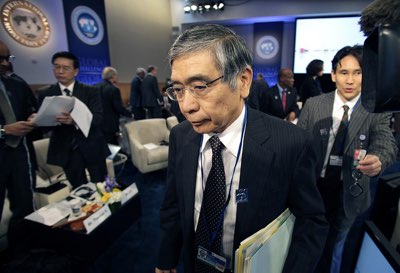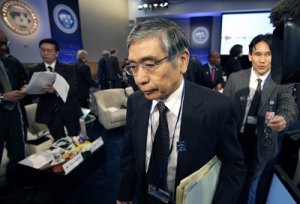
Signs that the Bank of Japan (BoJ) might scale back its monetary stimulus faster than expected sent tremors through bond markets on Monday, while European stocks slipped as threats of further U.S. tariffs on China drained risk appetite.
Europe’s bond yields climbed after a Reuters report that the BoJ was discussing modifying its huge easing programme sent Japan’s 10-year bond yield to a six-month high.
The report rekindled anxieties about monetary stimulus easing around the world and piled further pressure on investors already struggling to navigate rising protectionism.
The yield on Europe’s benchmark bond, the German 10-year Bund, hit a one-month high of 0.39 percent and U.S. 10-year Treasury yields also hit their highest in a month at 2.90 percent.

The yen climbed to two-week highs against the dollar and was last up 0.2 percent at 111.14 per dollar.
“It’s all that concern investors have about the move from global quantitative easing to global quantitative tightening. That fear gets stoked when you have reports such as this,” Psigma Investment Management’s head of investment strategy, Rory McPherson.
“The ECB meeting this week will be more in focus now that we’ve had this concern about Japan.”
The dollar index meanwhile bounced back, up 0.1 percent from two-week lows hit after U.S. President Trump criticised the Federal Reserve’s tightening policy and accused the European Union and China of manipulating their currencies.
“We see the latest news on trade policy as pointing to continued high risk of escalation between the U.S. and China, and a renewed focus of the Trump Administration on currency matters,” Goldman Sachs analysts said.
Beijing said it has no intention of devaluing the yuan to help exports.
Trump’s comments about rates also helped the Treasury yield curve reach its steepest in three weeks. The yield curve’s flattening has been seen by some as a sign of an impending recession.
The U.S. president’s new threats to slap duties on all $500 billion of U.S. imports from China triggered sell-offs across stock markets, though good earnings kept a lid on losses.
The MSCI all-country world index declined just 0.1 percent while MSCI’s broadest index of Asia-Pacific shares outside Japan fell 0.2 percent.

